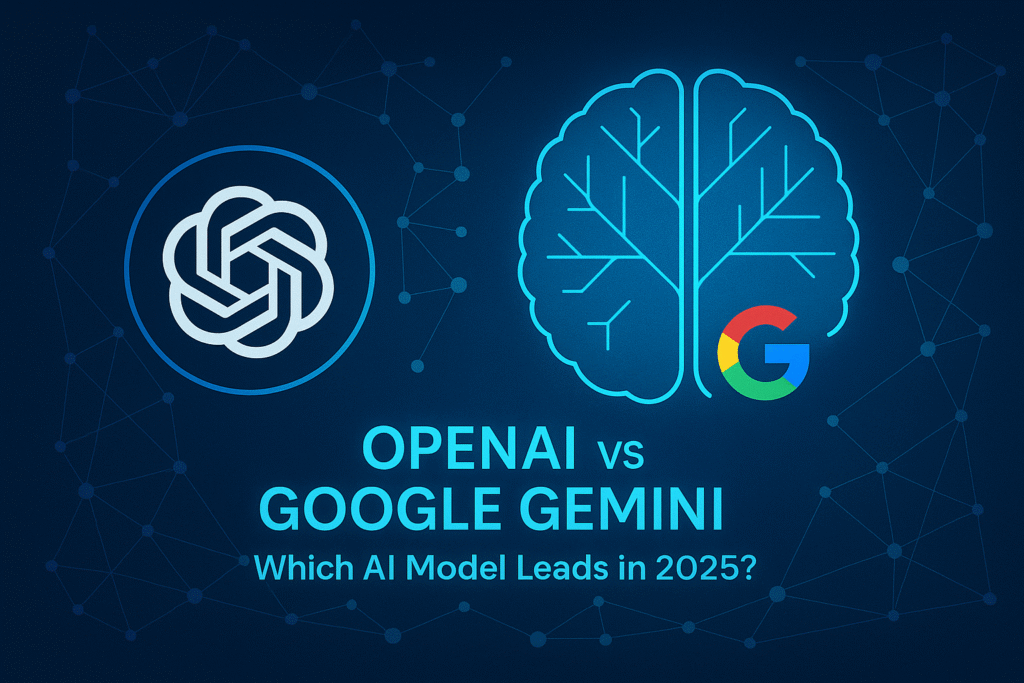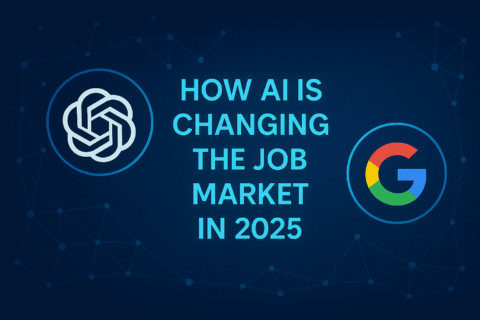Artificial Intelligence is becoming part of our daily lives faster than we imagined. In 2025, two major players dominate the consumer AI space: OpenAI’s ChatGPT and Google’s Gemini. These tools are not just chatbots—they are digital assistants that can help you write, design, translate, plan your schedule, and even summarize your life’s tasks. But which one is right for you? This blog compares ChatGPT and Gemini in simple language to help you decide which tool fits your needs best.
1. Ease of Use
ChatGPT is accessible through a clean, chat-style interface on web and mobile apps. It feels intuitive, like texting a very smart friend. Users can interact with it by typing questions or prompts. It’s designed to be easy for everyone—from students to marketers to parents.
On the other hand, Gemini is deeply integrated into Android devices and Google Workspace. You don’t need to open a separate app—it’s built into Gmail, Docs, and even your phone’s home screen. Gemini shines in day-to-day productivity where native integration makes tasks smoother and more automatic.
2. Features & Capabilities
ChatGPT 5.5 now supports multimodal input. That means it can understand not just text, but also images, documents, and even respond using voice or video. You can upload a photo and ask what’s in it, or feed a long PDF and get a summary. It also remembers past interactions for Pro users, offering a more personalized experience.
Gemini focuses more on productivity. It connects to Google’s services—like Gmail, Calendar, Maps, and Translate. Need to draft a formal reply, summarize your inbox, or find directions to your next meeting? Gemini does it quickly. Its strength lies in being a powerful assistant rather than a content creator.
3. Speed & Accuracy
Both tools are fast, but they differ in behavior. ChatGPT is optimized for creativity, fluid language, and thoughtful insights. It’s excellent for writing articles, creating scripts, or brainstorming ideas.
Gemini, being tied to Google’s live data, tends to be more precise with current events, local suggestions, and factual information. It's like having Google Search with a voice and brain.
4. Cost & Accessibility
ChatGPT is available in a free version, but its best features—including image and file understanding, memory, and more advanced logic—are available with the ChatGPT Plus plan (around $20/month).
Gemini currently comes free with Android and Google services, though premium versions with advanced AI writing and translation features may be launched soon. Its biggest advantage is zero setup if you're already a Google user.
5. Privacy & Data Handling
OpenAI has been transparent about their policies, and ChatGPT offers a memory toggle to let users control how much the AI remembers. However, some users remain cautious about feeding sensitive information into any cloud-based AI system.
Google, meanwhile, has a longer history of managing user data, but also faces criticism over how much it collects. If privacy is your top concern, it’s wise to read both providers’ data policies carefully.
Use Cases: Which One is Better For You?
- For Writers and Creators: ChatGPT is ideal if you're writing blogs, creating content, or need help generating ideas.
- For Busy Professionals: Gemini works seamlessly if your life revolves around Google Docs, Sheets, Gmail, and Android tasks.
- For Students: Both tools are great for learning, but ChatGPT might be better for explaining tough topics in a conversational way.
- For General Everyday Use: Gemini, thanks to native Android integration, fits into your routine more passively and efficiently.
Conclusion
There’s no universal winner—both ChatGPT and Gemini have their strengths. The good news? You don’t have to choose just one. Many users today switch between the two depending on the task. Whether you’re writing, organizing, planning, or just exploring, AI is here to assist—not overwhelm. Try both and see which one fits your daily flow best. And for more simplified AI comparisons, follow 'AI for Mundane'.






